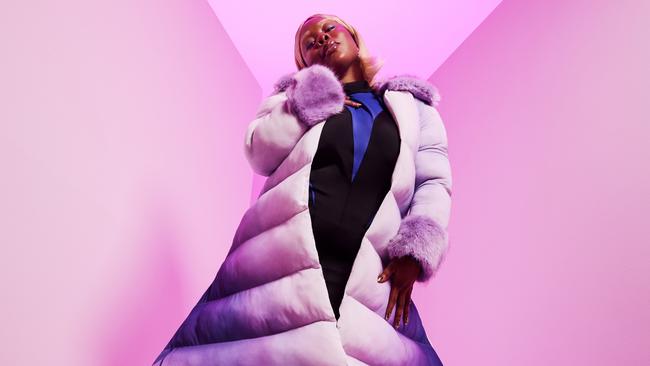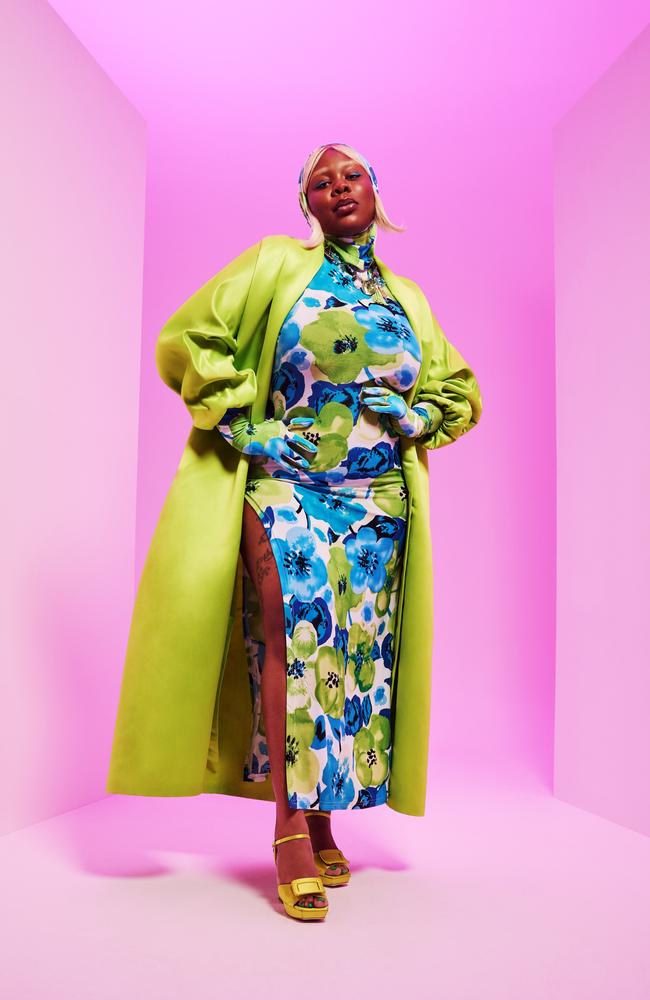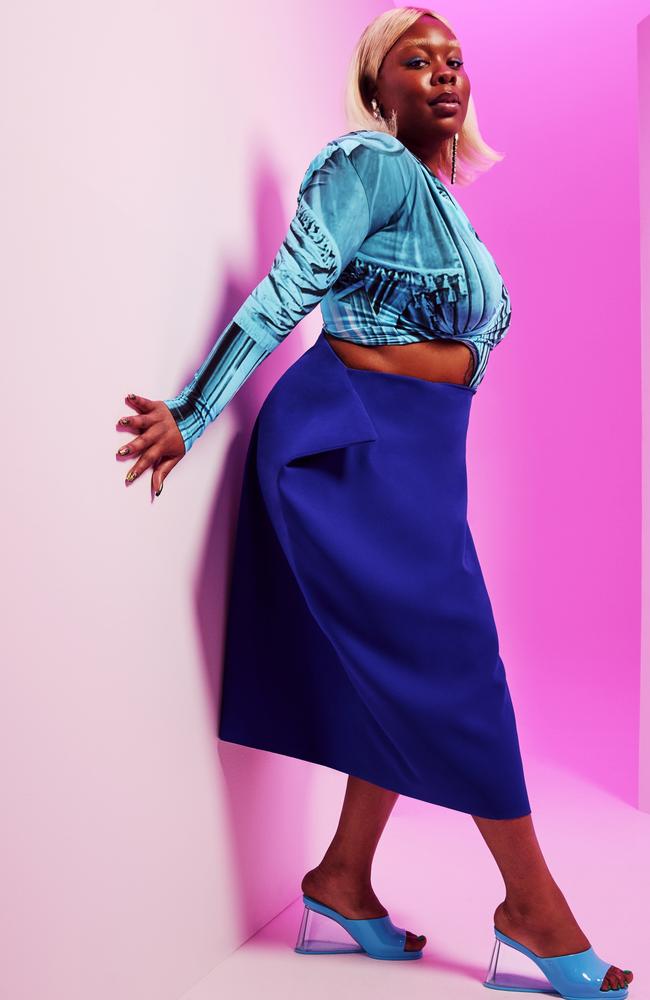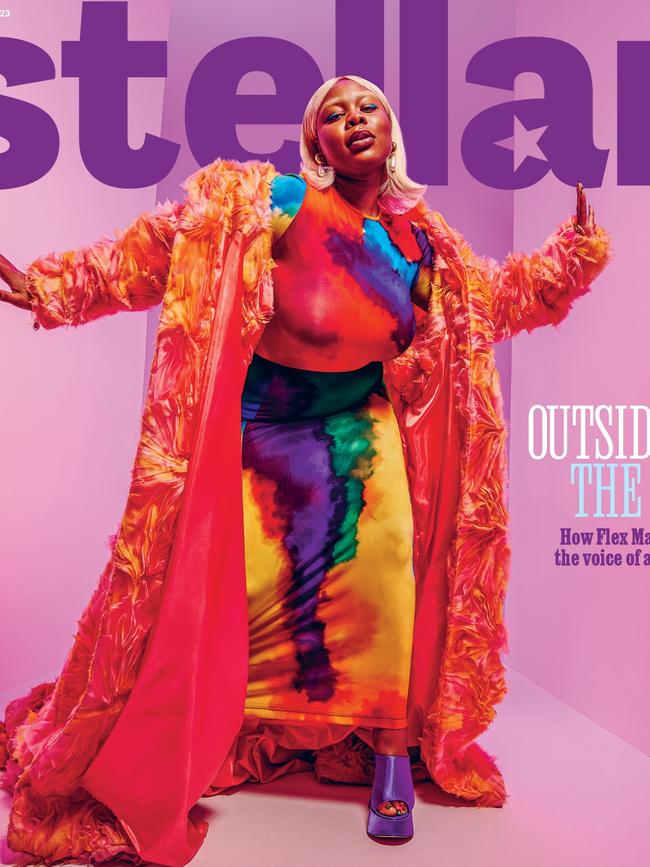‘It starts with you’: TikTok star Flex Mami slams ‘fickle’ body backlash
Flex Mami – AKA Lillian Ahenkan – reflects on using her influence (9 million likes on TikTok) to tackle serious issues, including why she was less than impressed with body diversity on the runways at Fashion Week.

Stellar
Don't miss out on the headlines from Stellar. Followed categories will be added to My News.
With 169K followers on Instagram and 9.9 million likes on TikTok, Lillian Ahenkan – better known as Flex Mami – is a bona fide social-media powerhouse.
In a wide-ranging interview on the Stellar podcast Something To Talk About, the 29-year-old entrepreneur, radio host, television presenter, podcaster, reality TV contestant, author, DJ, e-commerce store founder and “professional opinion haver” reflects on juggling her business savvy with using her platform as an influencer to tackle complex and philosophical issues.
On how her first (and brief) role in public relations helped her to harness the power of social media and carve out her career as a DJ: “Unlike many of my DJ peers at the time, being a DJ was an antidote to a lack of career satisfaction [in PR]. It was a cool job that would make my real job feel easier to be around. I liked music but it wasn’t a vocation. I was able to use my PR skills because it’s all I knew then. I used to do this obnoxious thing where I would reach out to local bars and clubs by email and send a little press release about myself. Can you imagine thinking that you, as a new DJ, are so newsworthy that you send out a little press release? ‘Hey, everyone!’ But it worked.”

For the full interview with Flex Mami, listen to Stellar’s podcast, Something To Talk About, below – or wherever you get your podcasts.
On how the moniker “Flex Mami” was born: “People eat with their eyes, and rely on distinct visual and verbal cues to assess whether or not something is cool and creative – and ‘DJ Lillian’ was not hitting the mark. So I got my friends together and we did a roundtable and I said, ‘I need a name.’ At the time, ‘Flex’ was this casual, colloquial language. But as you can imagine, ‘DJ Flex’ or just ‘Flex’ generally on the internet was taken up by the chiropractic community, yoga community, Pilates community and, like, rubber materials. So I needed a suffix. I said, ‘Somebody give me something.’ And then we got ‘Mami’.”
On an important heart-to-heart she had with her mother about racism [Flex was born and raised in Sydney after her parents emigrated from Ghana] and why she refuses to hold herself back from sharing her opinions online, regardless of how easily she could be “cancelled”: “I remember my mum having this conversation with me when I was maybe 14, 15, and she was trying to educate me about racism. I was just like, ‘What are you talking about?’ I distinctly remember her saying, ‘Some people just aren’t going to like you because of the way you look and because of the perceptions they have about blackness, about womanhood, about fatness or whatever.’ And I was like, ‘There is no way. I am an individual and I can overcome any perception.’ She was like, ‘You’re wrong. However, it’s good for you to feel that way.’ So without this kind of disclaimer, that I could walk into spaces and somebody would just see the perception of me and make a firm decision that they
do not like who I am and nothing I could say, do or project could change their mind, it makes it far easier to exist on the internet as the person I choose to be. But for the most part, even when people don’t like what they’ve seen, now it doesn’t feel personal. Now
I’m like, so long as I like my self-concept and the way I’ve projected it, I feel quite comfortable. And if it works out, it works out. And if it doesn’t, I’m on borrowed time anyway! I wasn’t even meant to be here.”

On experiencing racism in Australia in her teens and early 20s, and the fear of having uncomfortable conversations: “The racism I experience is definitely covert. And it’s ‘othering’. It’s always the questions and the justifications or the backhanded compliment – which, if you’re in an insecure teen, young-adult body, you begin to convince yourself ‘I’ve got the better end of the stick.’ Because it could be far worse. I could be ostracised physically, I could be abused for living in this body. And people just call me articulate and say they’re surprised. Is it really that bad? What I find to be quite tricky is I feel like what I perceive as things getting better is people being exposed to what is vehemently wrong. I remember when I used to do a lot of job interviews when I worked in PR and social media, and I’d go to an interview and people would be like, ‘Oh, I thought you were European based on your name, Lillian Ahenkan.’ And suddenly I’m having to justify myself. I also think that what I’m perceiving to be ‘progress’ might just be that we’re all learning the right verbiage. But I also feel as though it’s a very modern approach to assume that progressive change is meant to be comfortable and easy, and that’s why we found ourselves in this counterintuitive lull where, as opposed to confronting what we don’t understand, we find ourselves sticking to the perimeter of a room and saying, ‘I hope I don’t get called out today.’ And then we all start operating out of fear because I really don’t think for the average person that there’s this incentive to be better.”
On how we’re seeing less body diversity on our catwalks of late: “A couple of years ago, I talked about this idea that sometimes in order to get to real change, you must perform it. You fake it ’til you make it in hopes that one day one you’ll make it. But what’s happening
now is that we look at all these movements that are supposed to be journeys to something else, to a utopia, and then we just take them and use them as identifiers. Instead of ‘I’m someone who’s practising feminism for a better future’, I just simply am a feminist and I live
in this stagnant position where I’ve decided what my thoughts and morals are, and there’s no need to evolve them. Similar to body positivity, I think we just got so caught up on the aesthetics of it and we didn’t really unpack how we felt about fatness or fat liberation,
or if we could really challenge our ideas of prettiness. It all just turned into a conversation of platitudes.”

On whether representation brings pressure, and why external validation doesn’t work: “Representation is not necessarily a burden. I just think it’s so fickle. What concerns me is that if myself, in this current phase of my life, feels like a positive representation for you, and you’ve attached your self-concept to mine, when I change without your consent, it feels like I’ve left you behind. It feels like I’ve decided for you that you no longer get to feel whole in the way that you felt whole. We seek out representation and validation externally but we have to know that we always come back to self. How I feel about anyone at any given time is a direct reflection about how I feel about myself. So if I want the world to feel comfortable with my blackness, my womanhood, I must first feel comfortable with my blackness and womanhood.”
On what the Ghanian and West African concept of “big enjoyment” means and why we should all practise it: “It’s a phrase, ethos and personal philosophy on how to live life. There’s a commitment to feeling good, but also being good and recognising that life is only as good as your perception and your perspective – which I think often in the West, we want somebody else to be responsible for. But then, I go to Ghana … and there’s this blind faith that everything is going to work out well, and this responsibility that we have to each other in our communities, and this idea that the difference between you being happy is a choice you get to make. Are you going to smile today? Are you going to rejoice? Are you going
to be grateful or are you going to do what you’re doing? It’s this mutual responsibility to maintain the vibe.”
Catch Flex Mami’s podcast Flex & Froomes at 3-5pm weekdays on iHeart or wherever you get your podcasts.
For the full interview with Flex Mami, listen to Stellar’s podcast, Something To Talk About, below – or wherever you get your podcasts.
Originally published as ‘It starts with you’: TikTok star Flex Mami slams ‘fickle’ body backlash


